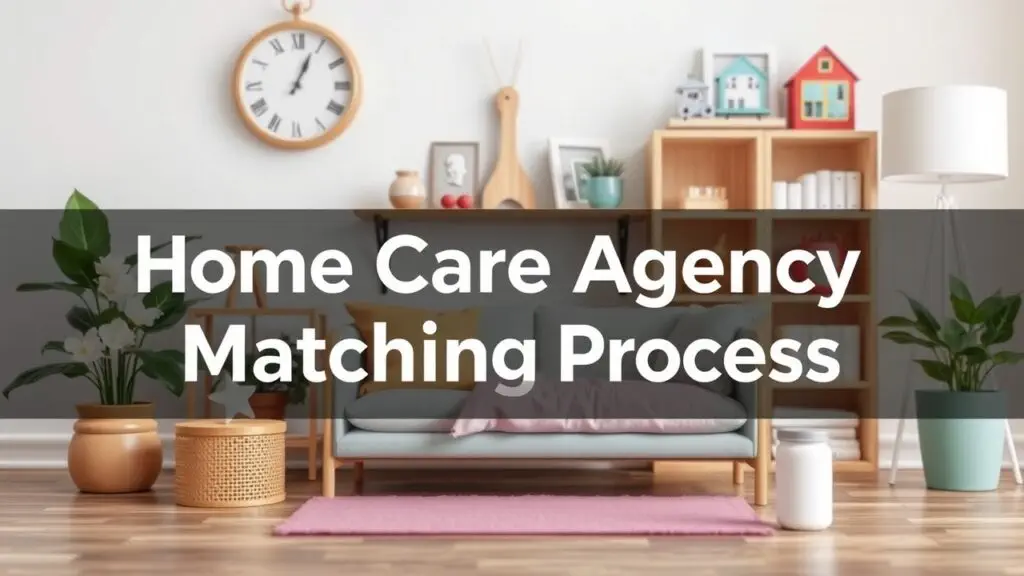Types of caregivers include family members, professional agencies, and specialized care providers. Selecting a caregiver for your loved one requires careful consideration of their individual needs and your family’s preferences.
What Are Caregivers and Why Do They Matter?

Caregivers are people who help those with physical, emotional, or mental needs. They are important because they help improve the quality of life for the individuals they care for. The word “caregiver” includes different roles, from family members giving unpaid support to professionals who offer specialized care.
Overview of Caregiving Responsibilities
The tasks involved in caregiving can be wide-ranging. Here are some common responsibilities:
- Personal Care: Helping with daily activities like bathing, grooming, and dressing.
- Medical Assistance: Some caregivers give medications or help manage medical equipment.
- Mobility Assistance: Aiding individuals to move safely in their homes or during outings.
- Companionship: Offering social interaction helps reduce feelings of loneliness.
These tasks help ensure that people receive care with dignity while meeting their basic needs.
Importance of Understanding Different Caregiver Types
Knowing about the various types of caregivers is crucial for families. Each type has its own skills tailored to specific caregiving needs:
- Family Caregivers (Unpaid): Usually relatives who give informal support without getting paid.
- Professional Caregivers (Paid): Includes home health aides (HHAs) and certified nursing assistants (CNAs), trained to provide skilled care.
- Independent Caregivers: Individuals who work on their own instead of through an agency; they may offer personalized services based on what clients need.
- Agency Caregivers: Professionals hired through agencies that check their qualifications and training.
Respite care services are also available. They allow primary caregivers a break by providing temporary help when needed.
Understanding these caregiver types helps families choose the right support. It gives them power over their options while promoting the well-being of their loved ones.
Who Are Family Caregivers?
Family caregivers are people who care for their loved ones without formal training or payment. This group often includes spouses, children, siblings, and close friends who take on caregiving responsibilities. They are essential in supporting individuals with chronic illnesses, disabilities, or age-related issues.
Responsibilities of Family Caregivers
Family caregivers have many important tasks that help their loved ones live better. These responsibilities may include:
- Helping with Activities of Daily Living (ADLs): This covers basic personal care tasks like bathing, dressing, grooming, and using the toilet.
- Managing Medications: They ensure that medications are taken on time. This involves organizing pills and reminding the person when to take them.
- Providing Transportation: Caregivers often drive their loved ones to medical appointments or social events. This helps keep them connected to healthcare and the community.
- Preparing Meals: Many family caregivers cook meals that fit specific dietary needs or restrictions based on health conditions.
Challenges Faced by Family Caregivers
Being a caregiver can be rewarding but also comes with challenges:
- Emotional Stress: Juggling caregiving duties with personal life can lead to feelings of isolation and burnout. Watching a loved one’s health decline adds to this stress.
- Financial Strain: Many family caregivers experience economic difficulties due to unpaid work. This can make it hard for them to work full-time and manage expenses related to caregiving.
Understanding who family caregivers are and what they do is important. Their contributions greatly benefit those they care for while supporting families in our communities.
Types of Professional Care Providers You Should Know About
When looking for care for yourself or a loved one, it’s key to know about different types of professional caregivers. Each type has its own services and support for various needs. Here’s a look at some common types of professional care providers.
Home Health Aides (HHAs)
Home health aides (HHAs), or personal care assistants (PCAs), help with daily tasks like bathing, dressing, grooming, and cooking. They also offer companionship. HHAs are important for improving the quality of life for those who need help at home but don’t need skilled nursing care. Their personal touch can really boost emotional well-being.
Certified Nursing Assistants (CNAs)
Certified nursing assistants (CNAs) support patients with medical needs under the supervision of registered nurses or licensed practical nurses. They monitor vital signs, assist with mobility, and make sure patients are comfortable while they recover. CNAs often work in hospitals or long-term care facilities, but they can also provide services in home settings.
Licensed Practical Nurses (LPNs)
Licensed practical nurses (LPNs) provide skilled nursing care that includes giving medications and managing treatment plans, especially for seniors and others needing more complex healthcare than what HHAs can give. LPNs perform specific medical tasks while also providing support to patients and their families.
Registered Nurses (RNs)
Registered nurses (RNs) have more advanced training than other caregiver roles and often lead healthcare teams. They assess patient conditions, create care plans, administer treatments, teach patients about health management, and coordinate overall care among different healthcare professionals. Sometimes, they may even act as medical power of attorney if needed.
Cost Considerations and Finding Qualified Professionals
Understanding costs is important when choosing a caregiver that fits your needs:
- Variations in Costs: The cost of hiring caregivers varies quite a bit based on their qualifications—HHAs usually charge less than RNs due to their different levels of training.
- Finding Caregivers: To find qualified professionals:
- Use home healthcare agencies that check candidates thoroughly.
- Look at online platforms that connect clients with caregivers.
- Influencing Factors: Several things affect caregiving costs:
- Where you live matters; urban areas usually have higher rates.
- The level of care you need impacts pricing; specialized skills generally cost more.
By knowing about the different types of caregivers—from HHAs to RNs—you can make smart decisions about caregiving options that suit individual situations or preferences.
Defining Informal Caregivers
Informal caregivers are people who help others without getting paid or trained. They often include family, friends, neighbors, or even volunteers. These caregivers are key players in providing community care. They meet caregiving needs and improve the lives of those they help, especially seniors and individuals with disabilities.
Responsibilities of Informal Caregivers
Informal caregivers take on many important tasks. Here are some of their main responsibilities:
- Companionship: They provide social interaction to help reduce feelings of loneliness and isolation.
- Daily Activities: Caregivers assist with everyday tasks like cooking meals, bathing, dressing, and managing medications.
- Errands and Transportation: They often run errands such as grocery shopping or picking up prescriptions. Many also drive their loved ones to medical appointments or events.
- Emotional Support: Offering emotional support is a big part of their job. This includes listening and encouraging those going through tough times.
These efforts are essential for enhancing the well-being of those receiving care by giving both practical help and emotional connections.
Establishing Boundaries and Expectations
Good communication is super important between informal caregivers and those they support. Setting clear boundaries about what each person can do helps avoid misunderstandings.
It’s crucial for caregivers to discuss how much time they can offer and what tasks they can handle. Regular chats about how things are going allow both sides to share any worries. This way, everyone feels comfortable talking about their needs and limits.
In the end, informal caregivers are vital in providing support in community care. Their roles range from companionship to helping with daily tasks. It’s also important for them to communicate openly about what they can realistically manage while caring for others.
How Agencies Match Caregivers
Home healthcare agencies help connect people who need care with the right caregivers. These agencies focus on caregiver recruitment to find skilled professionals that match the unique needs of their clients. First, they assess what the client requires. This includes looking at medical conditions, personal likes and dislikes, and how much help is needed.
After figuring this out, the agency uses its database to find possible caregivers. They consider important things like skills, experience, and personality to ensure a good fit. With their knowledge in caregiver employment and client needs, home healthcare agencies make finding the right caregivers simpler.
Advantages and Disadvantages of Agency Care
Choosing agency care has its ups and downs:
Advantages:
- Professional Care: Agencies provide trained professional caregivers who have been through background checks.
- Variety of Services: Many agencies offer services ranging from skilled nursing care to respite care services for family members.
- Insurance Coverage: Some insurance plans may help cover the costs of hiring agency caregivers.
Disadvantages:
- Cost Considerations: Hiring through an agency can be pricier than going with independent caregivers because of service fees.
- Less Control Over Selection: Clients might have limited say in which caregiver gets assigned unless they mention it beforehand.
- Potential for Inconsistency: Due to staff availability, different caregivers might provide care at different times.
By understanding these pros and cons, families can make smart choices about whether agency care is right for them.
Vetting and Choosing a Reputable Agency
When picking a home healthcare agency, it’s key to look at several factors:
- Background Checks for Caregivers: Make sure the agency does thorough background checks on all its employees.
- Caregiver References: Ask for references or testimonials from past clients about their experiences with caregivers from that agency.
- Evaluating Home Care Agencies: Research online reviews and ratings while checking for any complaints against them.
By carefully checking potential agencies based on these points, families can find reliable partners in caregiving that focus on safety and quality support suited to individual needs.
Assessing Care Needs

Assessing the needs of a care recipient is super important. It helps families find the right type of caregiver. This process checks physical, cognitive, and emotional needs to match the care recipient with suitable support.
Physical Needs
Look at how well the person can handle activities of daily living (ADLs). These include bathing, dressing, eating, toileting, moving around, and managing continence. Families should see if help is needed in these areas.
Example Questions:
- Can you bathe by yourself?
- Do you need help getting dressed?
- Are there mobility issues making it hard to move around your home?
Cognitive Needs
Next is cognitive assessment, which checks memory and decision-making skills. Knowing if someone has dementia or other issues helps families choose caregivers who know how to assist with these challenges.
Example Questions:
- Do you remember recent events?
- Do you sometimes feel confused about where you are?
- How do you feel about making decisions about your daily routine?
Emotional Needs
Emotional well-being matters just as much as physical health. A care recipient might need companionship or mental activities to stay engaged.
Example Questions:
- How often do you feel lonely during the day?
- What activities make you happy?
- Would talking with someone often help your mood?
Using these questions can give families a better idea of what their loved one needs. This info will help create an effective care plan that considers whether a family caregiver or a professional caregiver is more appropriate.
Budgeting for Caregiving
Making a budget for caregiving costs is really important. Different types of caregivers come with different expenses, so it’s key to prepare without surprises.
Here’s how the costs break down:
- Family Caregiver: Often unpaid but may have hidden costs.
- Professional Caregiver: Rates can vary; expect $20-$50 per hour based on location.
- Personal Care Assistant (PCA): Usually cheaper than skilled nursing; typically costs $15-$30 per hour.
- Skilled Nursing Care: More expensive due to specialized training; average rates are between $40-$100 per hour depending on services.
Funding options include:
- Long-Term Care Insurance: This helps cover various caregiving expenses but requires planning ahead.
- Government Assistance Programs: Medicaid can assist eligible individuals needing long-term care.
By knowing potential expenses, families can create budgets that include not only payments but also extra costs like transportation and medical supplies related to caregiver duties.
Care Recipient’s Preferences
Getting the care recipient involved in decision-making about their own care is really important. It helps respect their wishes and leads to better outcomes overall. Here are some strategies:
- Talk openly about what kind of help they want—like if they need company during meals or help taking medicine.
- Let them share past experiences with caregivers so future choices avoid those problems.
- Allow them some say in scheduling visits according to their routines instead of sticking to strict plans.
Respecting these preferences can boost satisfaction and encourage cooperation between the recipient and caregivers during their time together.
Short-Term vs Long-Term Care Needs
Deciding whether short-term support or ongoing long-term assistance is needed will influence how caregivers are hired:
- Short-Term Options: Temporary solutions like respite care when family members need breaks after surgery or illnesses that require short-term help before recovery.
- Long-Term Options: For chronic conditions requiring constant oversight—like Alzheimer’s—a consistent approach ensures familiar faces provide reliable service over time.
Understanding these differences helps families plan effectively for immediate challenges while setting up sustainable strategies for ongoing care needs, ensuring peace of mind knowing they are covered!
Self-Care Strategies for Caregivers
Self-care is very important for caregivers. It helps them stay healthy and avoid caregiver burnout. Caregivers come in many forms, like family caregivers, informal caregivers, and professional caregivers. Each type faces its own challenges and stress.
To improve health, caregivers should exercise regularly. Simple activities like walking or yoga can help reduce stress and improve mood. Eating healthy foods is also key. Good nutrition provides energy and helps caregivers focus better.
Social connections are vital too. Spending time with friends or family can ease feelings of loneliness that caregivers might feel. Joining community activities or support groups can help build friendships with others who understand caregiving.
Respite care services offer a break from caregiving tasks. These services allow caregivers to take time for themselves without feeling guilty. Options include hiring an in-home caregiver or using adult day programs, where trained staff take over care temporarily.
In short, by taking care of themselves—through exercise, healthy eating, maintaining social ties, and using respite care—caregivers can manage their responsibilities while keeping their own health in check.
Effective Communication
Good communication is essential for caregivers and those they care for. It builds trust and understanding between both parties. Caregivers should listen closely to the needs of those they assist while also sharing their own concerns clearly.
Discussing caregiving tasks with family members helps set clear expectations. It’s helpful when everyone understands their roles in the caregiving process. Working with an interdisciplinary care team—like nurses and social workers—can make communication even better. This teamwork ensures everyone knows what the care plan involves.
Key Points for Effective Communication:
- Listen actively to care recipients.
- Share personal concerns openly.
- Discuss responsibilities among family members.
- Work with healthcare professionals as a team.
Setting Realistic Expectations and Boundaries
It’s important to set clear expectations to avoid misunderstandings between caregivers and those they support. Caregivers need to know what tasks they can handle without sacrificing their well-being.
Setting boundaries is crucial too! This could mean having certain times when personal space or quiet time is needed during caregiving hours. When caregivers discuss these limits openly, it helps both sides understand each other’s needs better.
Tips for Setting Boundaries:
- Identify manageable tasks.
- Communicate limits clearly.
- Respect each other’s needs.
FAQs About Types of Caregivers
What is the difference between a hospice caregiver and a memory care caregiver?
Hospice caregivers provide support for terminally ill patients, focusing on comfort. Memory care caregivers specialize in assisting those with Alzheimer’s or dementia, ensuring safety and mental engagement.
What qualifications should I look for in a live-in caregiver?
A live-in caregiver should have experience in personal care and training in medical assistance. Look for certifications like CPR and first aid. Background checks are essential for safety.
How does a geriatric care manager help families?
A geriatric care manager assesses an older adult’s needs. They coordinate services, provide resources, and act as advocates. This support eases family stress during caregiving.
What services do companion caregivers offer?
Companion caregivers provide emotional support and companionship. They engage clients in activities, help with errands, and promote social interaction to reduce loneliness.
What does skilled nursing care include?
Skilled nursing care involves medical attention from registered nurses or licensed practical nurses. Services can include medication management, wound care, and monitoring vital signs.
How do I find a reputable home healthcare agency?
Research online reviews and ratings. Ask for references from past clients. Ensure the agency performs thorough background checks on their caregivers.
Types of Caregiving Options Available
- In-home Care: Provides assistance within the home, tailored to individual needs.
- Senior Care: Focuses on the elderly, ensuring safety and well-being.
- Palliative Care: Offers relief from symptoms of serious illnesses without curing them.
- Respite Care Services: Temporarily relieves primary caregivers for self-care.
- Assisted Living Facilities: Provide housing with supportive services for seniors.
- Adult Daycare Centers: Offer supervised activities during the day for adults needing assistance.
- Telehealth Caregiver: Delivers virtual healthcare support through technology.
- Community Care: Involves local support networks offering services to individuals in need.
By exploring these types of caregiving options, you can find appropriate support for your loved ones based on their specific needs and preferences.
Related Topics
- Types of Professional Care Providers
- Types of Caregiving Responsibilities
- Types of Caregiving Challenges
- Types of Support Resources for Caregivers
- Types of Care Needs Assessments
- Types of Funding Options for Caregiving
- Types of Caregiving Options Available
- Types of Questions to Ask Potential Caregivers
- Types of Agencies for Caregivers



Types of Caregivers: Choosing the Right Caregiver for Your Loved One’s Needs